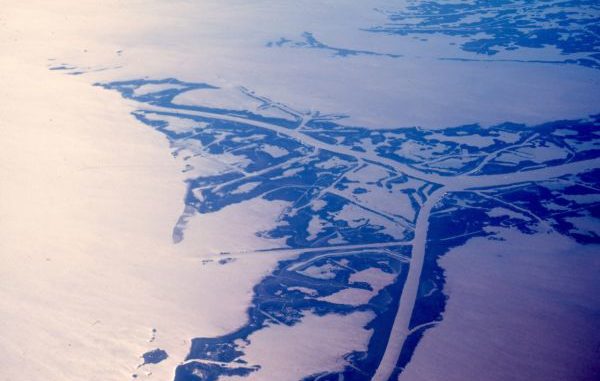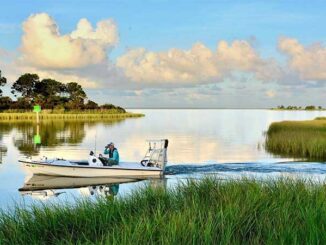
Vitter pushing to re-authorize the North American Wetlands Conservation Fund.
A federal program providing matching grants to organizations and individuals who have developed partnerships for wetlands conservation projects lost its congressional authorization last year, but U.S. Sen. David Vitter is pushing to have it renewed.
Vitter (R-Metairie) wants to keep afloat the North American Wetlands Conservation Fund, originally passed by Congress in 1989 as a vehicle to fund projects in Canada, Mexico and the United States that benefit certain migratory birds, fish and other wildlife.
It is one of those rare bipartisan efforts on Capitol Hill, with Democratic senators from Delaware, Maryland and Montana co-authoring Vitter’s re-authorization bill alongside Republicans from Arkansas, Idaho, Mississippi, Missouri and Oklahoma.
Vitter said the support in Louisiana is “obvious,” since the outdoors are “cherished” in the Bayou State.
“Wildlife-related recreation actually generates billions of dollars of economic output each year, and our re-authorization would allow folks across the country to continue protecting and enjoying one of nature’s treasures,” the junior senator said.
Vitter, the ranking Republican on the Environment and Public Works Committee, has also enlisted the help of EPW Committee Chairman Barbara Boxer, a California Democrat, as another co-author.
On the surface, it appears that the North American Wetlands Conservation Fund is a popular program in Washington, with President Barack Obama proposing to increase its funding by $3.9 million in his fiscal year 2014 discretionary budget request.
The last authorization offered by Congress approved the fund for up to $75 million per year. Plus, additional funding comes from penalties collected under the Migratory Bird Treaty Act, the federal fuel excise tax and interest accrued from the fund — a list that can add up to roughly $40 million annually.
Vitter’s bill is called the North American Wetlands Conservation Extension Act, or NAWCA, and it would reauthorize the program to protect and restore wetlands in all 50 states through 2017.
The program would remain the same under Vitter’s bill. It basically requires that every $1 the federal program grants out must be matched by at least $1 in private funds. But due to the highly-competitive grant process, Vitter said each federal dollar is usually matched on average with $3.20 in non-federal funds. It is also voluntary on the part of the landowners involved.
Since the program was launched, grants have leveraged more than $3.2 billion in matching funds nationwide to deliver a total of over $4.2 billion in on-the-ground conservation affecting tens of millions of acres of habitat.
There are two avenues groups can take: a standard grant or a small grant, both of which are competitive.
The so-called small grant only pertains to the U.S. and cannot exceed $75,000. The selection criteria is the same for standard grants, meaning the project must offer long-term protection, habitat upgrades and restoration elements. But standard grants can also be applied to projects in Canada and Mexico, and are much larger in scope.
Closer to home, the state Wildlife and Fisheries Commission and Ducks Unlimited have used the grants system with some success. Earlier this month, both announced that $10 million was being used to support wetlands restoration on Canadian breeding grounds important to Louisiana’s waterfowl — and that the grants program had played a critical role.
Jerry Holden, Ducks Unlimited‘s director of conservation programs, said it was a wide investment on the state’s part.
“As approximately 35 percent of the ducks harvested in Louisiana come from Saskatchewan, investing Louisiana’s dollars in this geography clearly provides the greatest return for the state’s waterfowl hunters,” Holden said.
Louisiana currently has 47 fund projects either complete or underway. These projects have conserved a total of 519,038 acres of wildlife habitat. So far the federal program has put up $33 million to match private investments of more than $92.5 million for these Louisiana-only projects. The state also has a handful of projects its is overseeing with officials in Mississippi.

